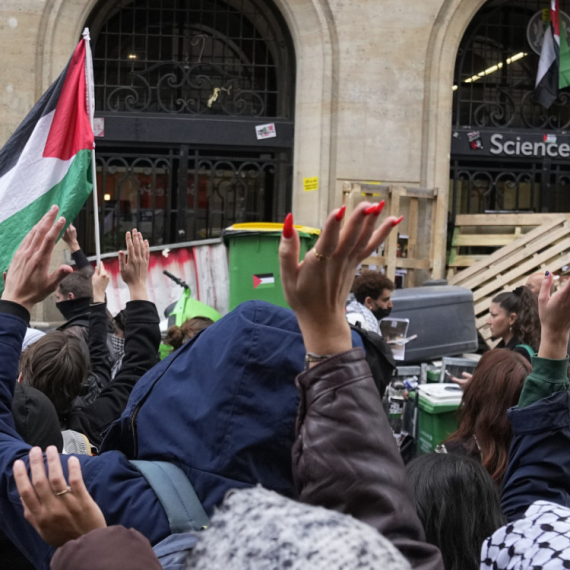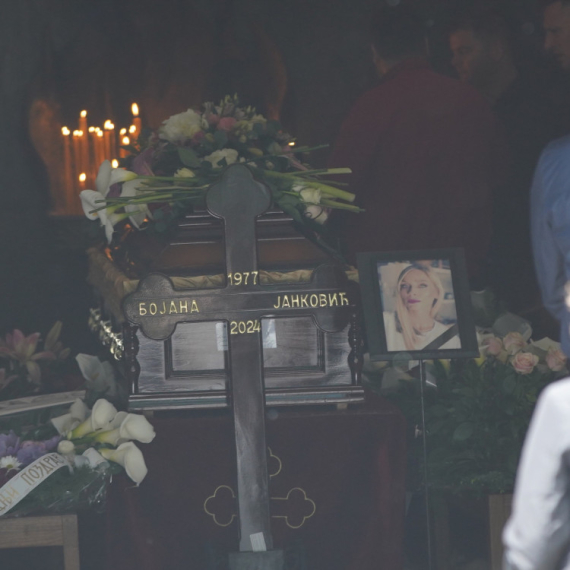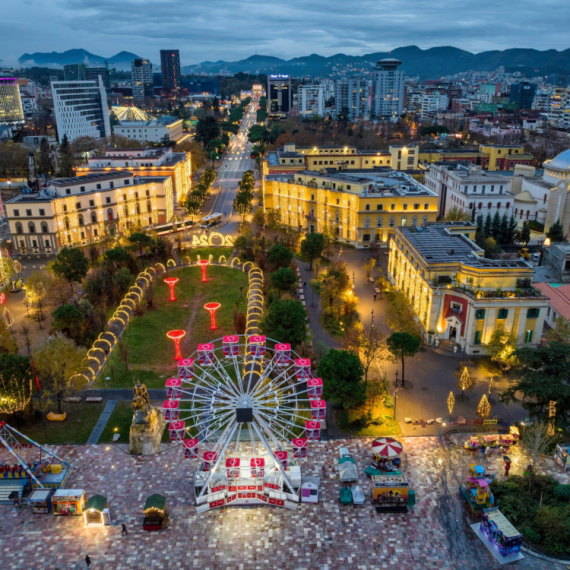Serbia marks decade since Đinđić assassination
Ten years ago today the first democratically elected Prime Minister of Serbia and Democratic Party leader Zoran Đinđić was assassinated.
Tuesday, 12.03.2013.
09:45

BELGRADE Ten years ago today the first democratically elected Prime Minister of Serbia and Democratic Party leader Zoran Djindjic was assassinated. Djindjic was killed by sniper fire in front of the government headquarters in Belgrade. Serbia marks decade since Djindjic assassination Like every March 12, this tragic event will be marked by a walk through the center of Belgrade, laying of flowers and wreaths at the Serbian government building entrance, and at his grave, and numerous gatherings and events. The Serbian government a few hours after the murder declared a state of emergency. Members of the Zemun Clan criminal gang were immediately suspected as the perpetrators. This was supported by the fact that, as the government later said, the signing of a warrant for the arrest of a number of members of this criminal group was planned for that day. During the state of emergency, which lasted until April 22, the police action Saber saw 11,665 people arrested, including some party officials, senior military officers, judicial officials and pop stars, and some of them spent some time in custody. The main suspect for organizing the assassination was former commander of the later disbanded Special Operations Unit (JSO) Milorad Ulemek, and members of the Zemun Clan Dusan Spasojevic and Mile Lukovic. The latter two were killed on March 27, 2003 by the police who attempted to arrest them. The direct perpetrator of the murder, Zvezdan Jovanovic, was also arrested, as were several other members of the JSO and many members of the Zemun Clan. These arrests were also helpful in solving a number of murders that occurred earlier. In August 2003, the indictment was filed against 44 people for involvement in organizing the murder and the trial commenced on December 22, 2003, at the District Court in Belgrade. On May 23, 2007, the accused were found guilty and sentenced to a total of 378 years in prison. Milorad Ulemek hid for 14 months before surrendering in May 2004. He was sentenced to 40 years in prison, as was the perpetrator of the assassination Zvezdan Jovanovic. Late Prime Minister Zoran Djindjic was one of the leaders of the Democratic Opposition of Serbia (DOS) and October 5, 2000, revolution that overthrew the regime of Slobodan Milosevic. He was one of the founders of the Democratic Party (DS), and became its president in January 1994 - the position he held until his death. In January 1997 he was elected mayor of Belgrade, but was removed from office later same year at the request of coalition partners, Vuk Draskovic's SPO. According to U.S. weekly magazine Time, Djindjic was one of 14 leading European politicians of the third millennium. The government headed by him was formed on January 25, 2001. When he took over, Djindjic said that he and his ministers would work to establish democratic foundations in Serbia. Djindjic's government began sweeping reforms, social and economic. After years of instability and tense and bad relationships, good relations were established with western countries, especially the United States. His government was in favor of cooperation with the Hague Tribunal, and during her tenure several indictees were arrested and extradited, including Slobodan Milosevic. As former DS leader and president of Serbia Boris Tadic recently told B92, Djindjic "boldly approached the Kosovo issue and more or less advocated a partition". Zoran Djindjic was born on August 1, 1952, in Bosanski Samac, Bosnia-Herzegovina. He studied at the Faculty of Philosophy in Belgrade, and earned his PhD in 1979 at the University of Konstanz, Germany. He received several international awards for his political engagement and was the author of many scientific papers in the field of philosophy and political theory and translator of several philosophical works. Djindjic was buried on March 15, 2003, in the Alley Of Deserving Citizens at the New Cemetery in Belgrade. The funeral procession in Belgrade consisted of hundreds of thousands of citizens, among them 70 foreign state delegations. Zoran Djindjic (Goranka Matic, file) B92
Serbia marks decade since Đinđić assassination
Like every March 12, this tragic event will be marked by a walk through the center of Belgrade, laying of flowers and wreaths at the Serbian government building entrance, and at his grave, and numerous gatherings and events.The Serbian government a few hours after the murder declared a state of emergency.
Members of the Zemun Clan criminal gang were immediately suspected as the perpetrators. This was supported by the fact that, as the government later said, the signing of a warrant for the arrest of a number of members of this criminal group was planned for that day.
During the state of emergency, which lasted until April 22, the police action Saber saw 11,665 people arrested, including some party officials, senior military officers, judicial officials and pop stars, and some of them spent some time in custody.
The main suspect for organizing the assassination was former commander of the later disbanded Special Operations Unit (JSO) Milorad Ulemek, and members of the Zemun Clan Dušan Spasojević and Mile Luković.
The latter two were killed on March 27, 2003 by the police who attempted to arrest them.
The direct perpetrator of the murder, Zvezdan Jovanović, was also arrested, as were several other members of the JSO and many members of the Zemun Clan. These arrests were also helpful in solving a number of murders that occurred earlier.
In August 2003, the indictment was filed against 44 people for involvement in organizing the murder and the trial commenced on December 22, 2003, at the District Court in Belgrade. On May 23, 2007, the accused were found guilty and sentenced to a total of 378 years in prison.
Milorad Ulemek hid for 14 months before surrendering in May 2004. He was sentenced to 40 years in prison, as was the perpetrator of the assassination Zvezdan Jovanović.
Late Prime Minister Zoran Đinđić was one of the leaders of the Democratic Opposition of Serbia (DOS) and October 5, 2000, revolution that overthrew the regime of Slobodan Milošević.
He was one of the founders of the Democratic Party (DS), and became its president in January 1994 - the position he held until his death.
In January 1997 he was elected mayor of Belgrade, but was removed from office later same year at the request of coalition partners, Vuk Drašković's SPO.
According to U.S. weekly magazine Time, Đinđić was one of 14 leading European politicians of the third millennium.
The government headed by him was formed on January 25, 2001. When he took over, Đinđić said that he and his ministers would work to establish democratic foundations in Serbia.
Đinđić's government began sweeping reforms, social and economic. After years of instability and tense and bad relationships, good relations were established with western countries, especially the United States.
His government was in favor of cooperation with the Hague Tribunal, and during her tenure several indictees were arrested and extradited, including Slobodan Milošević.
As former DS leader and president of Serbia Boris Tadić recently told B92, Đinđić "boldly approached the Kosovo issue and more or less advocated a partition".
Zoran Đinđić was born on August 1, 1952, in Bosanski Šamac, Bosnia-Herzegovina.
He studied at the Faculty of Philosophy in Belgrade, and earned his PhD in 1979 at the University of Konstanz, Germany.
He received several international awards for his political engagement and was the author of many scientific papers in the field of philosophy and political theory and translator of several philosophical works.
Đinđić was buried on March 15, 2003, in the Alley Of Deserving Citizens at the New Cemetery in Belgrade. The funeral procession in Belgrade consisted of hundreds of thousands of citizens, among them 70 foreign state delegations.

























Komentari 21
Pogledaj komentare